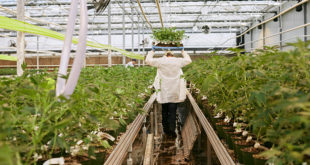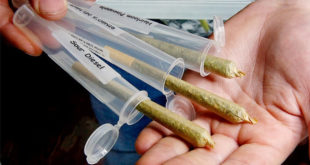
Arizona legalized cannabis for medical use in 2010 and for recreational use in 2020. It is legal for Arizona medical marijuana patients and anyone 21 or older to buy cannabis products from Arizona dispensaries.
Drivers treated for traffic-related injuries are more likely to test positive for high levels of alcohol (BAC ≥ 0.08 percent) than they are likely to test positive for elevated levels of THC (THC in blood ≥ 5 ng/mL), according to data published in the journal Addiction.
The researchers reported, “In this sample, there were over three times as many drivers with BAC ≥ 0.08% (12.6 percent) than with THC ≥ 5 ng/mL (3.5 percent), suggesting that alcohol remains a greater threat to road safety.”
Authors also acknowledged that drivers who tested positive for high levels of alcohol were more likely to be involved in single vehicle accidents as well as in motor vehicle accidents resulting in serious injuries.
Because THC can remain present in blood for extended periods of time, the study’s authors emphasized that at least some subjects who tested positive for cannabis may not necessarily have had recent exposure to it. They further emphasized that subjects testing positive for the presence of THC at levels below 5 ng/ml are typically not under the influence and likely do not possess a significantly increased risk of being involved in a motor vehicle accident.
Driving simulator studies generally report that cannabis administration is associated with compensatory driving behavior, such as decreased mean speed and increased mean following distance, whereas alcohol administration is associated with more aggressive driving behavior. Nevertheless, cannabis exposure can influence certain psychomotor skills necessary for safe driving, such as reaction time and drivers’ ability to maintain lane positioning.
A study conducted by the US National Highway Traffic Safety Administration reported that drivers who test positive for any amount of THC possess, on average, a far lower risk of being involved in a traffic collision than do drivers who test positive for alcohol at or near legal limits.
By contrast, drivers who test positive for the presence of both THC and alcohol in their system tend to possess significantly higher odds of being involved in a motor vehicle accident than do those who test positive for either substance alone.
 AZ Marijuana Arizona Marijuana Info
AZ Marijuana Arizona Marijuana Info






